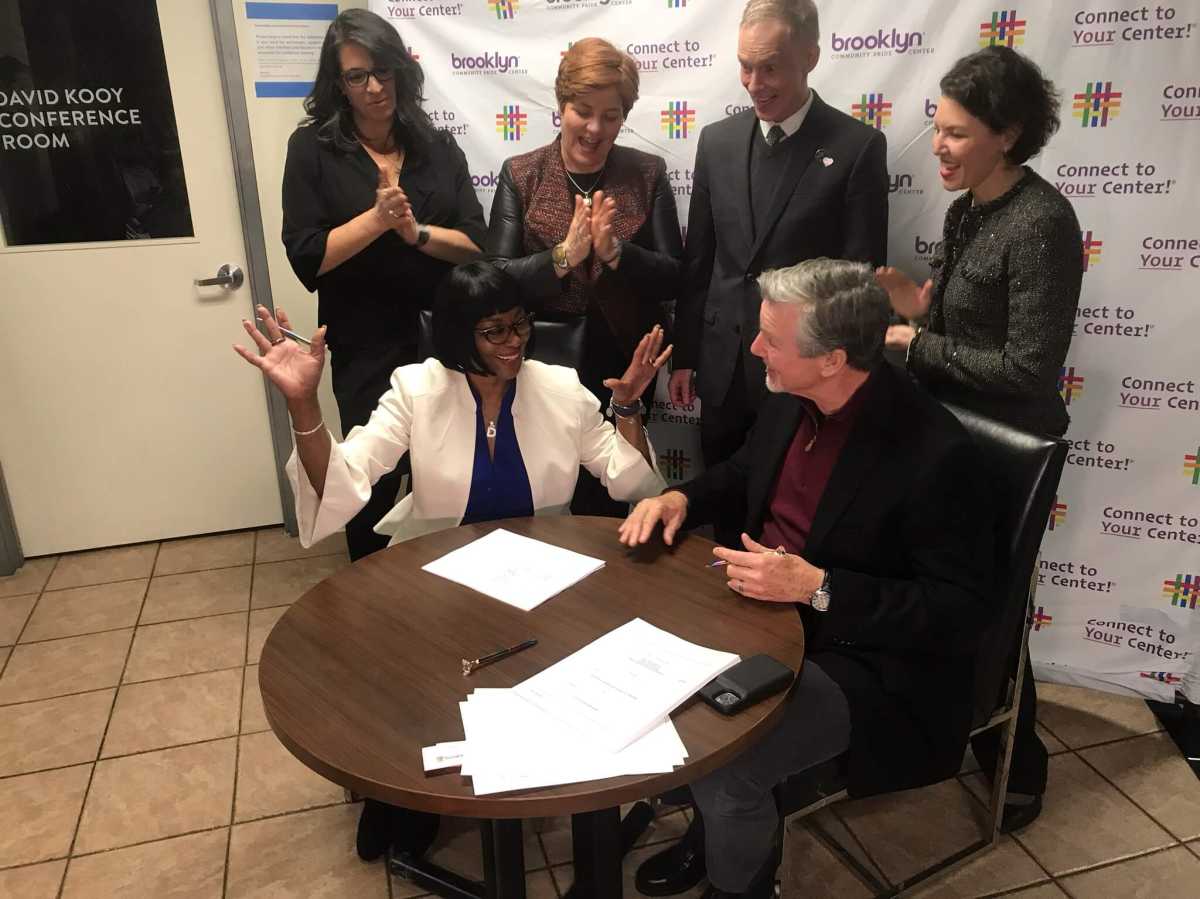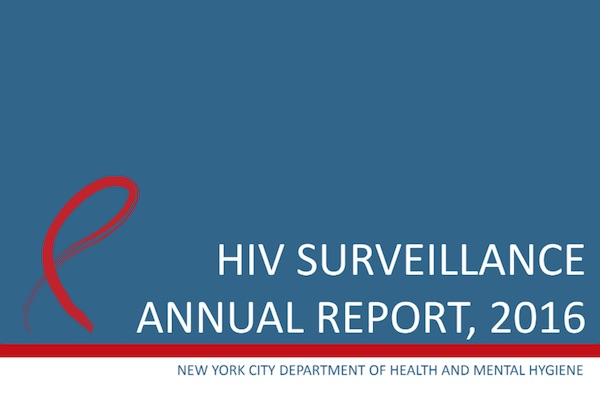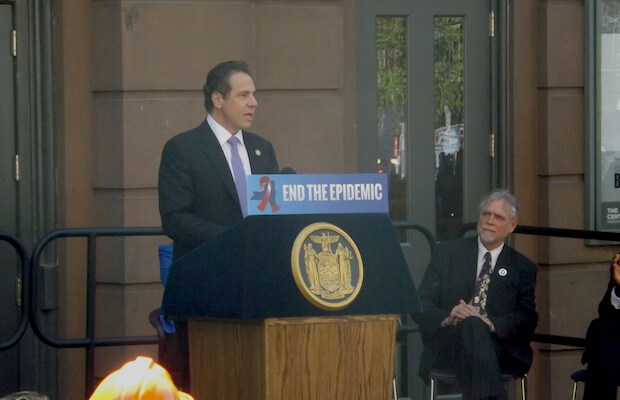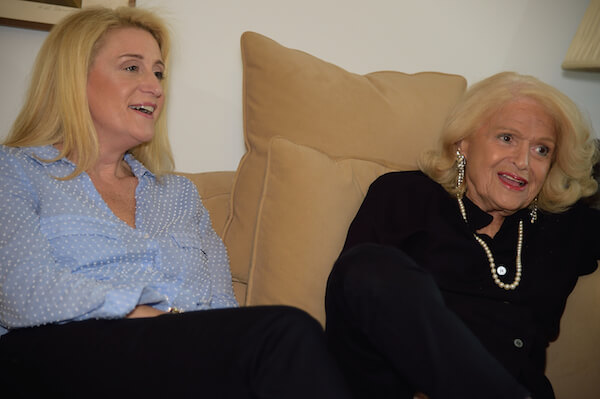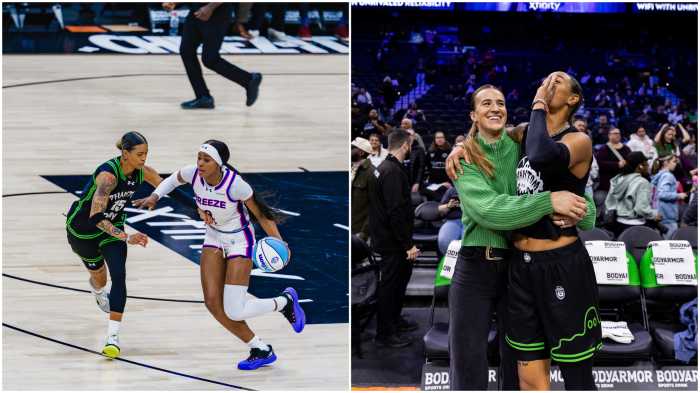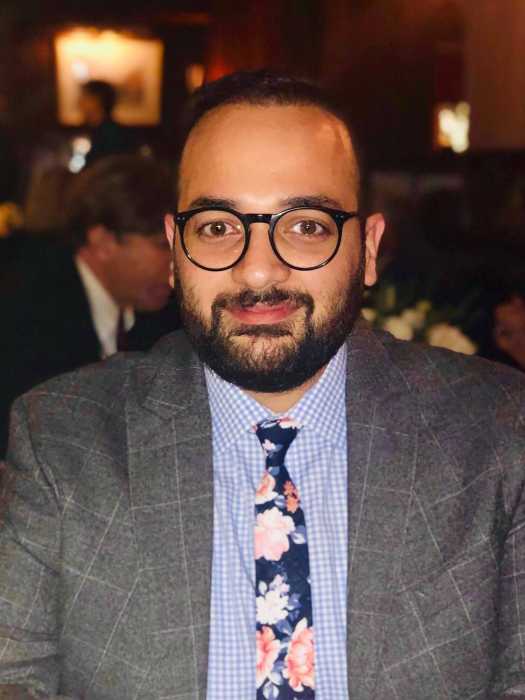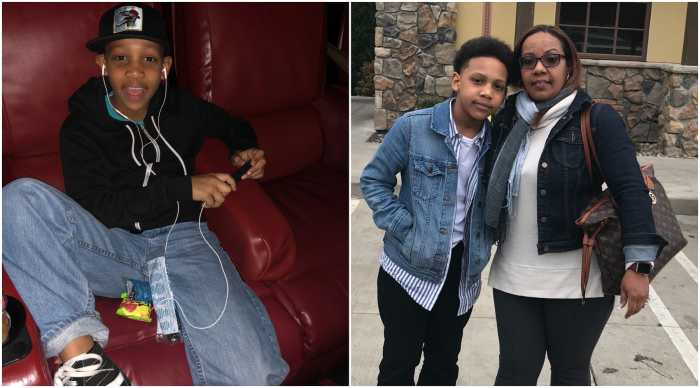Current and former elected officials, developers, and community leaders gathered at the Brooklyn Community Pride Center’s space in Bedford-Stuyvesant on February 11 to sign a 30-year lease on the organization’s new headquarters in Crown Heights, set to open late this year or early in 2021.
The Brooklyn Community Pride Center currently offers programming, services, and HIV and other health testing for the borough’s LGBTQ community at 1360 Fulton Street near Restoration Plaza — and that space will remain in place even after the new headquarters opens its doors. The new location, which will be housed in a newly renovated space at Bedford-Union Armory, is slated to boast a public working area, new offices, a pantry for events, a laundry room for queer individuals experiencing homelessness, and a dedicated LGBTQ mental health clinic, which will be operated by Callen-Lorde Community Health Center. Fitness programs for clients are also in the works at the new facility.
The Brooklyn Community Pride Center anticipates the new location opening up between September of this year and January of next, but the lease signing marked the beginning of a new era for an organization that has anticipated a new space for more than a decade. Former Brooklyn Borough President Marty Markowitz and out lesbian former City Council Speaker Christine Quinn signaled their support for a new space back in 2009, according to the center.
“Today is a celebration of a promise delivered,” Brooklyn Community Pride Center CEO Floyd Rumohr said. “After years of searching, assessing, fundraising, and negotiating, today we signed a 30-year lease on our new, state-of-the-art headquarters at the Bedford-Union Armory in Crown Heights.”
The new milestone gave Rumohr an opportunity to reflect on the center’s journey and its transformational growth over the years. He recalled a time when the center’s offices lacked enough electrical outlets and did not even have doors between rooms, representing a stark contrast to the upcoming space he describes as “state-of-the-art.”
Quinn was among those on hand and spoke about the importance of outer borough services provided by organizations such as the Brooklyn Community Pride Center. In emphasizing that point, Quinn stressed that activism in outer boroughs has been the driving force behind LGBTQ rights advances in New York City and beyond, which she said shattered the myth that her old City Council seat — the one currently occupied by out gay City Council Speaker Corey Johnson on the west side of Manhattan — was the one hub for queer issues. She specifically cited marriage equality and the passage of the Gender Expression Nondiscrimination Act (GENDA) as examples of initiatives that were championed by individuals in outer boroughs.
“That all only came to be, in my opinion — and statistics show it — when the communities [organized] within the boroughs they lived in,” she said, adding that people in outer boroughs “bravely came out.”
That organizing, Quinn added, also showed local elected officials that LGBTQ issues were not only of concern to white folks, but rather to diverse communities across the city.
Others on hand included BFC Partners principal Don Capoccia, which is developing the new space; Debbie Brennan, president of Brooklyn Community Pride Center’s board of directors; Wendy Stark, executive director of Callen-Lorde; Brooklyn Borough President Eric Adams; and Rachel Loeb, the chief operating officer of the New York City Economic Development Corporation.
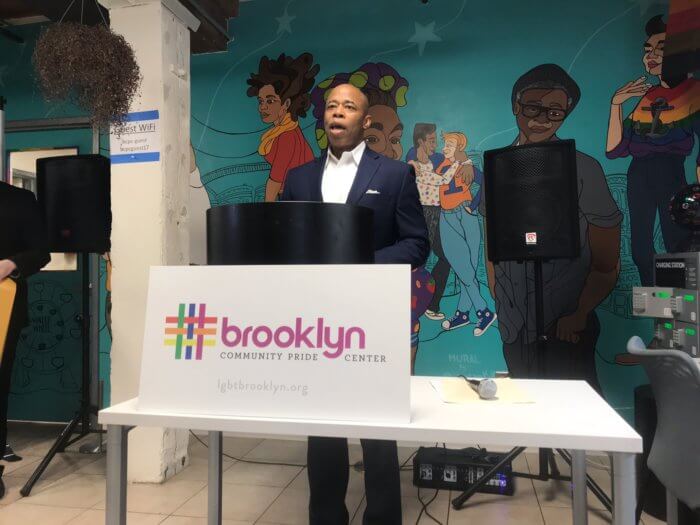
Adams, a 2021 mayoral hopeful who chipped in $1 million in capital funding to the new facility, delivered optimistic remarks about the center’s new location just weeks after he became embroiled in a messy controversy stemming from his oddly inflammatory remarks about Stonewall House, a new LGBTQ-friendly affordable housing building for seniors in Fort Greene. Adams griped at the Stonewall House opening that he was “concerned about the diversity” — despite the fact that 77 percent of residents there are people of color — and described it as a “pretty building on NYCHA property.”
This time around, the former cop appeared to try making amends: He invoked Harvey Milk and made attempts to connect with the Brooklyn Community Pride Center’s goals of serving marginalized queer folks. He recalled his time as a police captain in Manhattan’s sixth precinct, which encompasses the West Village and Greenwich Village, and seeing queer youth on Christopher Street who “could not find a safe haven anywhere else in the city and they needed a place where they could receive the services.”
“In this large community we have in Brooklyn, we were unable to give them the services,” he said, saying many queer people have historically had to go to Manhattan. “Many people don’t know when a young person decides to tell a family member that they are going to come out, they are ostracized. What we’re doing today is we are saying you do have a safe haven. You have a place where you can come to get services, workforce development, and just sit down and coalesce.”
Johnson, one of Adams’ rivals in the race for mayor who also provided funding to the new space on behalf of the City Council, did not attend — his out gay LGBTQ liaison, John Blasco, was there — but the speaker offered a written statement voicing support for the new location.
“The New York City Council has always been committed to supporting and investing in providing critical services to the LGBTQ community,” Johnson said. “The addition of Brooklyn Community Pride Center’s new headquarters will help give LGBTQ New Yorkers more access and empower them through awareness and education. As an openly gay man and the Speaker, I know all too well how important these centers are and I congratulate Brooklyn Community Pride Center on their new home.”

